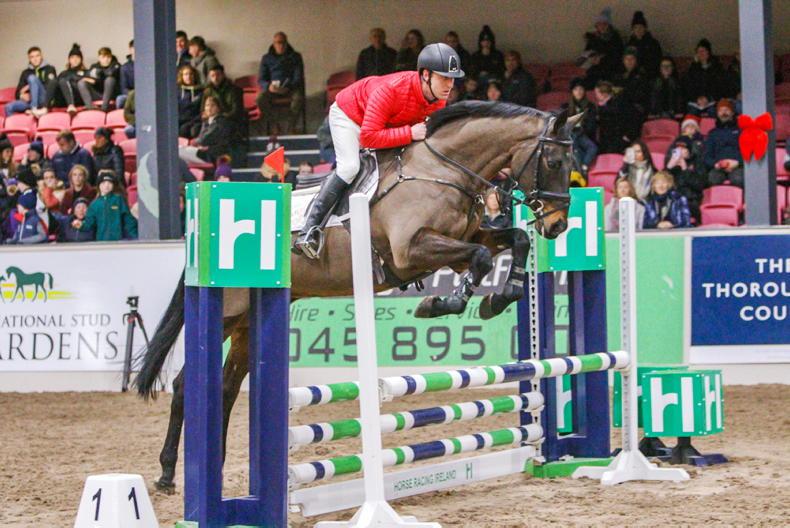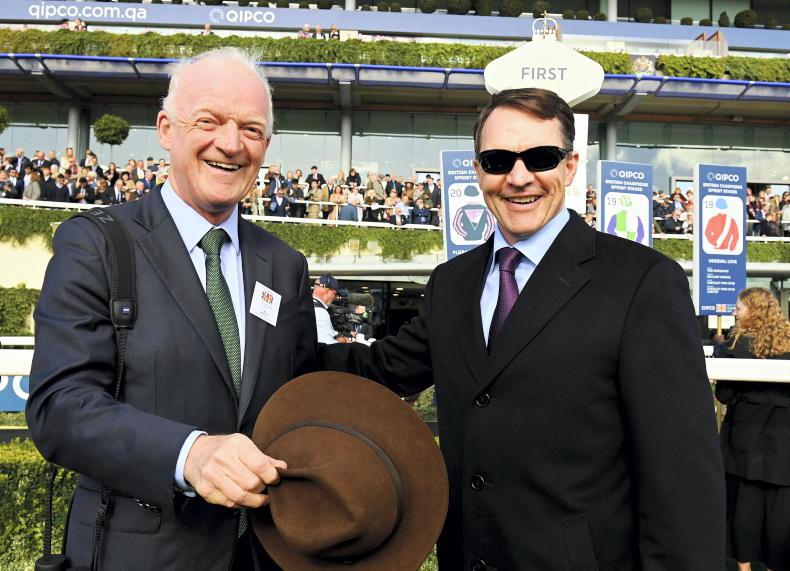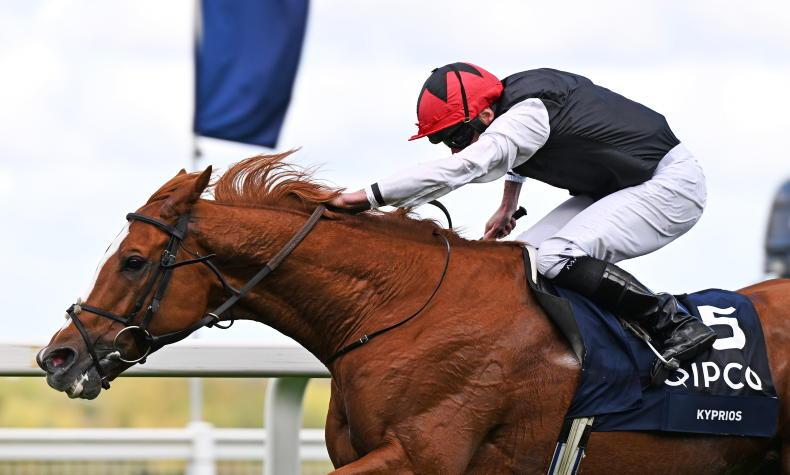DECEMBER is usually taken up with reflection on the past and planning for the future. It has been an eventful year, with various challenges and lots of progress. A year in which, for the first time, the British champion trainer, both Flat and National Hunt is Irish-based, in which the Epsom Derby and Oaks fell to separate Irish yards for only the second time, in which demand for Irish-bred and Irish-raced stock hit new heights, there were times it felt like a crisis. These are the best of times, but also the worst of times.
Highlights for the HRI Equine Welfare department included a very successful symposium in May, the launch of the Equine Safety Racecourse Capital Development project, the publication of the Equine Injury in Irish Racing Risk Reduction report, a fatal-injury rate trending downwards, an eight-figure financial commitment by Government and its agencies to a redevelopment of the Irish Equine Centre, ongoing investment in track watering capability, and progress on traceability. We funded the presentation by Dr Chris Whitton on bone injury and its mitigation. We engaged with the Irish Equine Vets Association at their annual conference.
The Best Turned-Out league continues to showcase the dedication of our workforce to the care and wellbeing of our horses. In 2023, over 180 trainers’ teams achieved a best-turned-out prize. This breadth of horse care is one of our most valuable assets.
Accurate records
Recent changes in how export papers are processed, contingent on the horse being known to the centralised database referred to as AIMS, is traceability in operation. It may involve a little added paperwork, but it is what is necessary to reach our goal of ensuring that the responsible person in the life of any horse is always identifiable. The census is a must-do for everyone, too. Remember, it is the horses which were in your care on November 30th, so there is still time to submit accurate records and it is now very much in your interests to do so. This simple notification process smooths future paperwork.
We have an animal identification system which is world-leading, we will continue to work towards better systems of updating the record, in cooperation with all players in the business. It will involve ourselves, the IHRB, Weatherby’s, the Sales Companies, the shippers and the Department. The goal is that the record is kept straight at the major moments in the life of the horse, including change of ownership, sale, competition and transport.
Treo Eile Christmas Show
The Treo Eile Christmas Show is happening next Thursday, December 12 at Emerald Equestrian, Enfield, Co Kildare. Treo Eile has attracted the support of virtually everyone in the industry and the work of its team is greatly appreciated. The concept is simple, to Connect, Support and Promote the aftercare of ex-racehorses. This makes rehoming easier, stimulates demand and upskills people to improve the transition. It has global affiliation and embraces all equestrianism. If you can make it to Emerald, you will experience their work first-hand and all support, both of time and money, is welcome.
Challenges of the year
The challenges of the year included the Prime Time Investigates expose, and the fallout from that. We have engaged in debates on the issues raised and we are hopeful that an alternative can be established to ensure that we do not see any accumulation of unwanted horses. We are grateful for the work done for 20 years by the Irish Horse Welfare Trust. The IHWT has been conducting an online auction to raise funds and that initiative closes on December 10th, so there is still time for you to support its work.
HRI remains committed to prioritising horse safety, care and welfare, which are seen as existential for the sport worldwide. Our efforts do not please all the people all of the time, but it is a better environment now with lively discussion, more openness about what is a complex matter, and concerted efforts to improve not just the image, but the fundamentals of the sport. The concept of seeing everything from the perspective of the horse is relatively new and cultural change happens gradually. Ultimately, the sport of horseracing will depend on getting this right nearly all the time, while dealing with our failures maturely.
Our focus remains on the areas where HRI can have the most impact – traceability, standards and safety nets. The standards piece refers to industry education and training, licensing and will lead ultimately to a system for assessment and validation of care and welfare standards in any premises. In doing so, we will have a more skilled and confident workforce, which will not fear this subject and will be able to point to the provable high standard of husbandry and wellbeing, which our horses enjoy. The public discourse is very focused on sporadic negative moments, almost obliterating all the great work done in the day-to-day routine of a racehorse. We come from a viewpoint of high standards, but open to improvement.




 This is a subscriber-only article
This is a subscriber-only article
 It looks like you're browsing in private mode
It looks like you're browsing in private mode












SHARING OPTIONS: